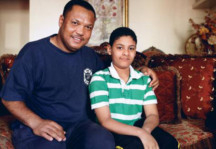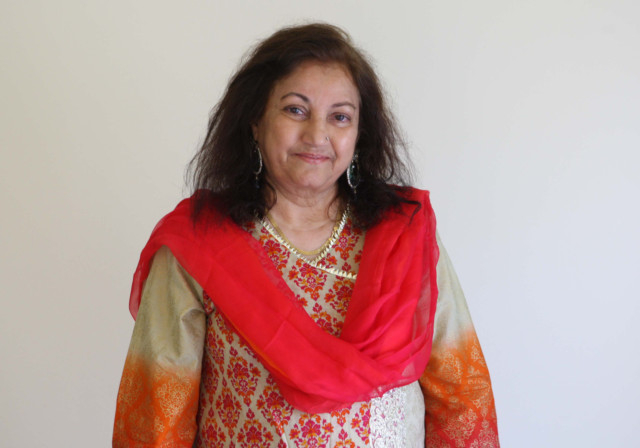
Dubai: Fasting is considered to be a test of one’s patience and perseverance and these qualities can come under added pressure when the weather is humid and the sun scorching.
This year, most of Ramadan falls in the month of July, a time when the UAE records some of its highest temperatures. But will that make fasting more difficult? The only way to know would be to go back in time — 33 years ago — when Ramadan and July last overlapped. Back in 1980, the UAE was very different, and so, apparently, was Ramadan.
Gulf News takes a look back into the Ramadan of the past through the recollections shared by some of the newspaper’s readers.
For an 18-year-old Emirati, the UAE in those days presented long, carefree nights with friends and family. Today, 50-year-old Saif Eisa Al Meskiri looks back at those days with yearning.
“I used to have a nice life during Ramadan, it was a long time ago,” Al Meskiri said.
“We used to get together, spend a lot of time together. But now things have changed,” he added.
And for a young man with a group of friends, Ramadan nights were filled with endless walks along empty streets and conversations filled with laughter.
“As a young boy, you have no responsibilities so you spend the whole night with your friends or at the mosque,” he said.
As the landscape of the country was strikingly different, so was life 33 years ago. Al Meskiri clearly remembers the heat that forced everyone indoors. But try as they may, it was not always possible to avoid stepping out.
“It would be very hot. And when you are fasting, you imagine eating a lot when the sun finally sets. But when you are sitting with the iftar spread in front of you and hear the azaan, you end up eating very little compared to what you wanted!”
But youth was on his side, and Al Meskiri misses that more than anything else about Ramadan in 1980.
“The only difference between Ramadan then and now is the age. As a young boy, I used to wake up in the evenings and stay up late into the nights. The days were filled with so much fun with friends. You cannot stay awake for too long now,” he said.
In the three decades, Al Meskiri’s average Ramadan day seems to have taken a 360 degree turn. Now, he prefers to go to bed early, wake up in time for suhour and focus more on faith like reciting the Quran and attending the extra Ramadan prayers.
Another Gulf News reader, Mohammad Farook, shared similar sentiments about Ramadan back in the day. Despite the heat and lack of air-conditioned facilities, Ramadan was more about community than hunger or thirst.
A shopkeeper in the busy alleys of Deira’s Spice Souq, Farook has been a part of the thriving trade centre Dubai’s Creek has historically been.
He fondly remembers the past when people had more time to talk and share. He even remembers the exact date when he landed in the country: “I came to the UAE on November 18, 1977. We were new to the country, but my friends had told me about the place and the weather, so Ramadan was not difficult.”
Trying to beat the summer heat with watermelons and yoghurt for iftar, Farook said fasting was easy as they were part of the community.
“Everyone was friendly, people were very kind. They would consider you part of the family and ask you to join them at the table if you came during dinner time.”
Iftars, too, were a community event, with Farook joining his friends and organising the public iftar at the Lootah mosque on Naif road in Deira, popularly known as “Kuwaiti” mosque.
“There would be hundreds of people ending the fast together, we would have some dates, kanji [a rice porridge] and fruits,” Farook said.
But fruit was difficult to come by, according to the Indian national.
“Nowadays, fruits are abundantly available, but back then you sometimes did not get to eat watermelon. But it wasn’t something that bothered us.”
Farook even spoke about the morning alarm system in 1980, which was more old-school than today’s mobile phone alarms.
“A man used to walk along the streets of Hamriya with a big drum, shouting and singing ‘wake up, it’s time for suhour’ in Arabic. We would get up and quickly have suhour before heading out for the Fajr prayers,” he said.
And celebrating Eid after the month-long fasting was again a time to be with his friends.
“We would all pitch in and rent a minivan and go on a picnic to Fujairah, Dibba or Al Ain,” Farook said.
“Back then, there wasn’t any traffic, the electricity bills and rents weren’t so high and people just stopped on the side of a road whenever they wanted to. Everyone was approachable.”
In stark contrast, another Gulf News reader, Zarina Abdul Razzaq, remembers Ramadan to be a very personal struggle. As a young mother trying to build her career and life, she worked at an office in Deira.
“When I came here, I was 28 years old. Today, I am 67. I lived in Sharjah and worked in Deira. I would punch in at 9am, quickly find out about new leads and then head out to meet clients,” she said.
And her years of hard work paid off, as she soon saved enough money to buy a shop and then a few more. Today, as a businesswoman, she lives with her family in Al Barsha, Dubai. But despite having many dreams and a positive attitude, life in 1980 was not easy for Zarina.
“I would make sure I didn’t miss a single fast and even though I had an air-conditioned car, the heat made it difficult. I would go and meet a few clients in the morning and my throat would be parched. After a few meetings, I would go back home for iftar and then return to work in the evening. That was when the market was thriving.”
In 33 years, Ramadan and Dubai have changed significantly, but Zarina’s enthusiasm for Ramadan has remained a constant.
“Fasting in July may be hard, but now life is easier. I live with my grandchildren, it’s a lovely place and I don’t have to face the heat as much as I had to when I was working. Now, I just have to pick and drop my grandchildren from school and visit my shop in Sharjah. It is nothing compared to what I went through as a young woman,” she said.
Talking about fasting in July, Zarina said: “In Ramadan, fasting becomes a lot easier than any other time of the year. You get a special stamina and you are able to bear a lot more. So, even though it will be very hot, I am sure fasting will be easy.”












